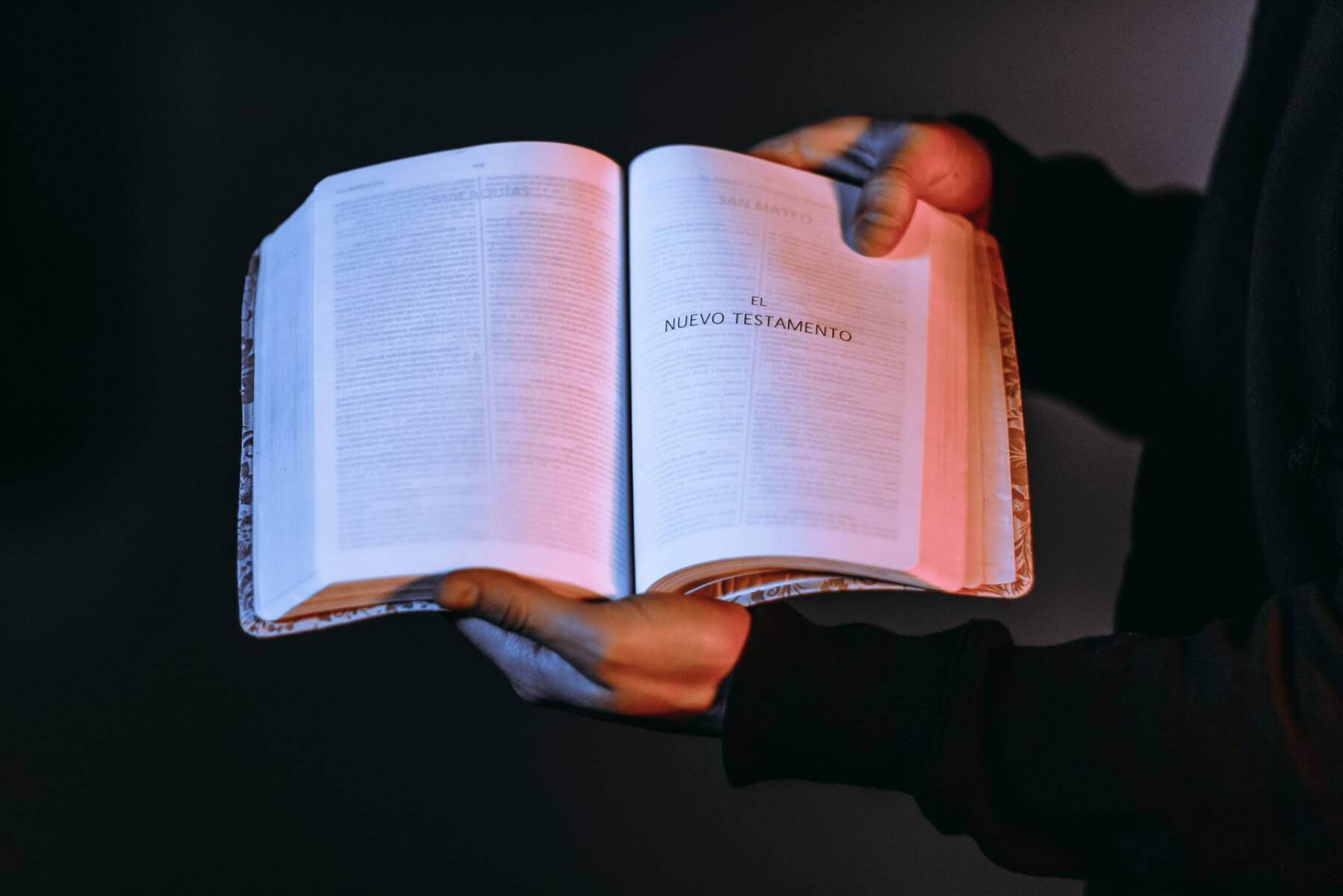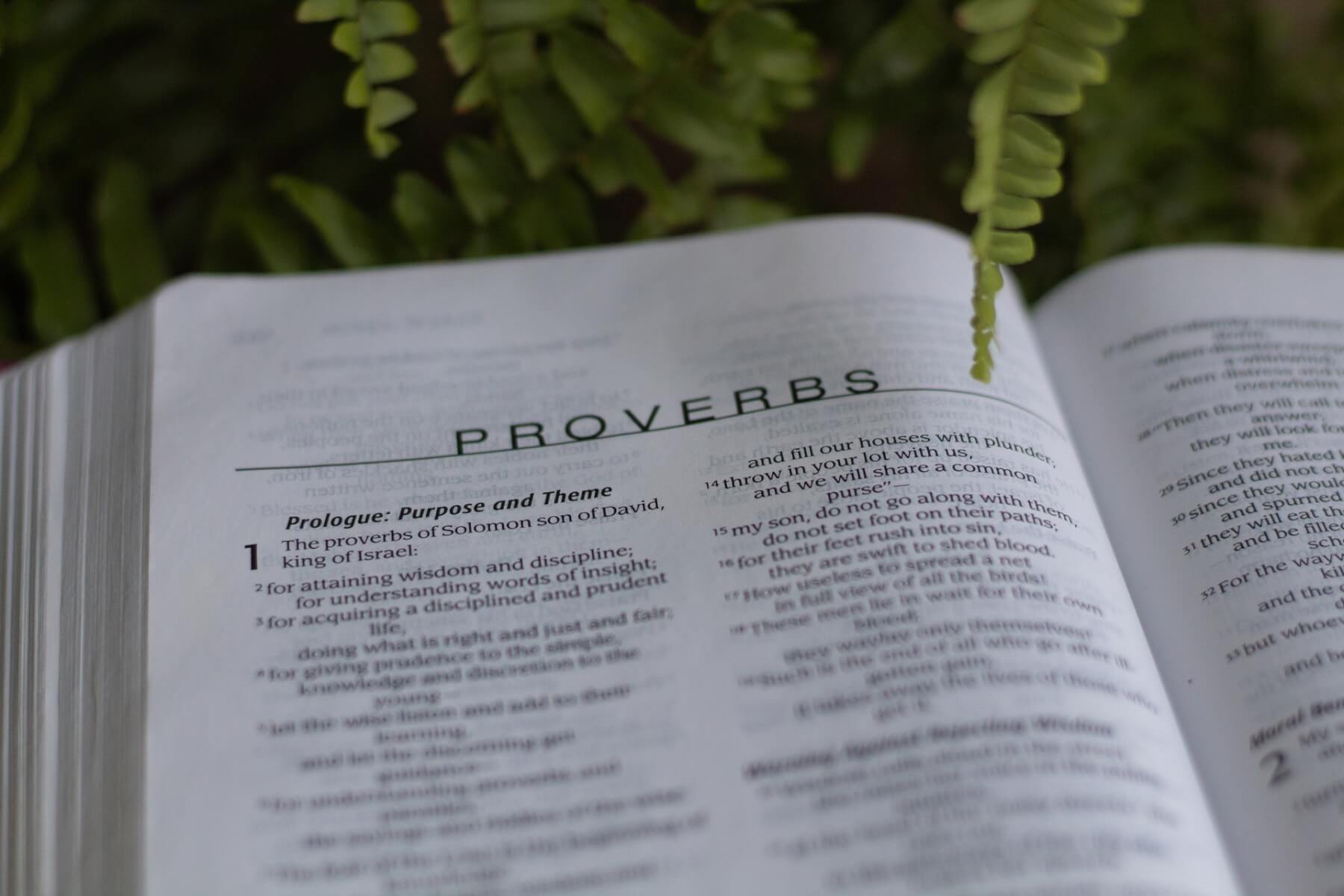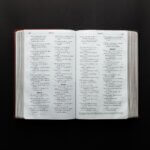The Bible encompasses a wide-ranging spectrum of content.
And not only because it is composed of 66 separate books, written by 40 authors, over the course of 1,500 years. As you read those 66 books of the Bible, you’ll run into broad range of literary genres: narratives, gospels, epistles, prophecy, wisdom, apocalyptic, and poetry.
Each genre should be read and appreciated on its own terms. Take the poetical books as an example. If you understand how to approach Job, the Psalms, Proverbs, Ecclesiastes, and the Song of Solomon, you will get much more out of reading them.
No matter what order you read the Bible in, you’ll encounter poetry at some point. The Psalms are situated in the middle of the Old Testament.
WESTERN POETRY VERSUS EASTERN POETRY
In the Western literary tradition, poetry often contains rhyming couplets. Alexander Pope’s poem “An Essay on Man” contains this famous rhyming couplet:
Hope springs eternal in the human breast:
Man never is, but always to be blest.
As modern Western readers, our ears are tuned to look for rhymes. But Hebrew poetry, especially in the book of Psalms, tends to uses a different device, called “parallelism.”
PARALLELISM IN HEBREW POETRY
Train tracks run “parallel” to each other—in other words, they are laid side by side. In Hebrew poetry, short phrases are laid side by side—often in pairs—to repeat, restate, compare, or contrast statements.
The Psalms use repetition and restatement, as well as comparison and contrast, to create beauty and unfold meaning. Psalm 1:5 says:
Therefore the wicked will not stand in the judgment, nor sinners in the congregation of the righteous…
The first phrase, “the wicked will not stand in the judgement” is followed by a second parallel phrase “nor sinners in the congregation of the righteous.” This device is commonly misunderstood to be a means of merely saying the same thing in a different way, but that would be too simplistic. The restatement almost always serves a purpose. When reading Hebrew poetry, ask yourself, “How do these parallel statements relate to each other? What does their relationship reveal?”
Here in Psalm 1:5, we learn that future judgment for all human moral actions is a certainty. But there is more. The Psalmist also sees only two outcomes for every person: the sobriety of being unable to withstand the final judgment, or standing joyfully among the congregation of the righteous. Here the author’s restatement has served to amplify and broaden the picture painted of the final day.
Sometimes the statements contrast with each other in order to provide greater meaning, and capture our imagination with the significance of what is being said. In Isaiah 40:30–31, we read:
Even youths shall faint and be weary, and young men shall fall exhausted; but they who wait for the Lord shall renew their strength; they shall mount up with wings like eagles; they shall run and not be weary; they shall walk and not faint.
In contrast to how even the fittest finally fall exhausted, those who wait on the Lord tap into an eternally renewable energy source! We are always reaching the end of our own self-reliant strength. If we lean on the Lord instead, we will find we have only come to the beginning of his strength.
If you need help identifying these kinds of patterns and parallelism, check out our recommended study Bibles.
THE POETRY OF THE PSALMS IS MEANT TO BE MADE PERSONAL
Another profound gift of Biblical poetry that is easily missed is how it is designed to be made personal. The Book of Psalms in particular has been frequently described as the prayer book of the Church. The Psalms are not merely a record of what David prayed—they are also a guide for what we ought to pray. Misunderstanding this, it would be easy to get bogged down in the difficulty of identifying the particular circumstances animating the psalmist’s prayer in any given Psalm. The particularity of the psalmist’s circumstances are often suppressed, precisely so that the particularity of our circumstances might be expressed! The Psalms are one-size-fits-all prayers designed for us to pick up and make our own in every season of life. They are often anonymous so that they might be made personal.
If it is a fair judgement to say that the modern Western Church has largely lost the art of lament, the good news is that the book of Psalms stands ready to lead us into fruitful lament. (See books like Michael Card’s A Sacred Sorrow: Reaching Out to God in the Lost Language of Lament for more on this lost art.)
A quick aside: if you’re a church planter, you need to be spending time in prayer through the Psalms. It’s one of my biggest pieces of advice to young church planters.
WHAT TO DO WITH LAMENT IN THE PSALMS
Grief is a powerful and startling emotion. It has been compared to a wave that sweeps sufferers off their feet—carrying everything before it with total destructive power. Grief also has an isolating effect—it makes the sufferer feel profoundly alone. In the words of Proverbs 14:10, “The heart knows its own bitterness, and no stranger shares its joy.” And yet Psalm 10 comes to the rescue. After only the first verse, the sufferer already feels seen, and finds language they can take up as their own personal prayer.
Why, O Lord, do you stand far away? Why do you hide yourself in times of trouble? (Ps 10:1)
The poet Wordsworth (1771–1850) defined poetry as “the spontaneous overflow of powerful feelings . . . recollected in tranquility.” While that definition is limited and reveals more about the poet than poetry, Wordsworth captures something of the gift that is the book of Psalms.
God does not actually hide himself from us in our suffering, but that is exactly what it often feels like to the sufferer. How sad that we often fail each other as comforters, when we are quicker to correct someone’s subjective overflow of emotion than we are to speak words of comfort, or sit beside them in companionable silence.
But Psalm 10 reminds sufferers they are not alone in their overflow of emotion. Because the psalmist starts his song with what is actually in his heart, he is able to slowly move beyond his fear to faith. He is able to eventually sooth his own soul by declaring at the conclusion of the Psalm: “O Lord, you hear the desire of the afflicted; you will strengthen their heart; you will incline your ear…” (Ps 10:17).
BIBLICAL POETRY HELPS WHEN WE FORGET OUR LINES
The book of Psalms is like a kind theater teacher quietly feeding lines to a child who is standing rooted to the stage and staring wide-eyed at the audience, having forgotten their lines. In our grief, in our anxiety, in our melancholy, it can be hard to find words for what we are feeling. Renowned trauma therapist Diane Langberg has wisely observed that time does not heal all wounds.
What is required for healing is time, plus talking, plus tears—all three. The Psalms feed us our lines when we are frozen in fear, so we can pour out our hearts before the face of the One with whom we have to do, so we can receive help and healing.
Biblical poetry teaches us to begin with what is actually in us, so that God might lead us up and out of the pit. Biblical poetry teaches us to neither deny our emotions nor remain dominated by them. Instead, as we declare them, we experience God as one who hears and draws near. No matter what version of the Bible you read, there’s a lot of wisdom and instruction in the Psalms.
Much Biblical poetry is the perfect scripture for wallpapers and backgrounds.
WHAT ABOUT IMPRECATORY PSALMS IN THE BIBLE?
So-called “imprecatory” Psalms are those that invoke judgment on God’s enemies. They can feel uncomfortable to read, and confusing in light of Jesus’ teaching that seems to invite a different way of speaking about one’s enemies. Jesus taught, in the Sermon on the Mount:
You have heard that it was said, ‘You shall love your neighbor and hate your enemy.’ But I say to you, Love your enemies and pray for those who persecute you, so that you may be sons of your Father who is in heaven. For he makes his sun rise on the evil and on the good, and sends rain on the just and on the unjust. (Matt 5:43–45)
In Psalm 109:9–10, the psalmist complains to God about the wicked and says “May his children be fatherless and his wife a widow! May his children wander about and beg, seeking food far from the ruins they inhabit!” Abandoned children – out of step with Jesus’ teaching?
First, the psalmist does not presume to bring justice to the wicked himself, but entrusts the “case” of the wicked to God’s perfect judgment.
Second, the psalmist goes on to describe the nature of the wickedness in vv. 16–17:
For he did not remember to show kindness, but pursued the poor and needy and the brokenhearted, to put them to death. He loved to curse; let curses come upon him! He did not delight in blessing; may it be far from him!
In other words, the psalmist is describing someone who takes advantage of the most vulnerable with no pangs of conscience and no fear of reprisal. The psalmist is not calling down curses on someone who elbowed him in a pick-up basketball game. He’s praying down protection on the most vulnerable, and asking God to step in and stop their violent and belligerent oppressors.
Third, we must never forget that one of the primary ways God has answered these imprecatory prayers—in the fulness of unfolding revelation—is to take upon himself the curses and punishments invoked by these Psalms.
And more astonishing still, even as Jesus hung on that tree and became himself a curse, he somehow summoned concern for those wicked men—men who trumped up charges against him, executed him, and then stuck around to mock him and spit on him. Contrary to every natural and expected human instinct, he prayed from the cross, “Father, forgive them, for they know not what they do” (Luke 23:34).
MESSIANIC PSALMS AND POETRY
The whole Bible is about Jesus. The book of Psalms is a place one might expect to have difficulty connecting to Jesus’ person and work. But the Psalms are like pieces of origami that are beautiful, but not fully unfolded until the New Testament displays their fullest and deepest meaning. The Psalms are constantly falling from Jesus’ lips, and constantly fulfilled in his life. The psalmist prays many years before Jesus’ incarnation:
In sacrifice and offering you have not delighted, but you have given me an open ear. Burnt offering and sin offering you have not required. Then I said, “Behold, I have come; in the scroll of the book it is written of me: I delight to do your will, O my God; your law is within my heart” (Ps 40:6–8).
When the psalmist concludes by declaring, “I delight to do your will, O my God; your law is within my heart” (Ps 40:8), any reader can resonate with that statement and make it their prayer: “Yes, God, make my duty into my delight.” But all the while that reader would be wondering quite how God might accomplish this minor miracle! But as revelation continues to unfold in Scripture, the author to the Hebrews can attribute those exact words to Jesus himself.
Consequently, when Christ came into the world, he said, “Sacrifices and offerings you have not desired, but a body have you prepared for me; in burnt offerings and sin offerings you have taken no pleasure. Then I said, ‘Behold, I have come to do your will, O God as it is written of me in the scroll of the book.’” (Heb 10:5–7)
As the people of God down through the ages have mulled over Psalm 40:8, and wondered how their duty might be transformed into their delight, the author to the Hebrews explains that it will only happen as Jesus is living his life in and through them. Their duty will slowly become their delight as they are given new hearts, with new desires—indeed, a whole new self.
FINAL THOUGHTS ON PSALMS AND BIBLICAL POETRY
The Psalms are poetry—but a particular kind of poetry that is not immediately intuitive to modern Western ears. As we thoughtfully mull over parallel lines, richer meaning emerges.
The Psalms are the prayer book of the Church. The Psalms are built for us to step inside and find words for our deepest emotions, so that we might go vertical with our complaints.
The Psalms are sometimes imprecatory—but they are imprecatory precisely because they care about justice for the oppressed, and safety for the most vulnerable, not because they are petty or bitter. These imprecatory prayers should also always put us in mind of how God himself would one day answer them in a way no one would expect—by taking those prayed-for punishments upon himself and offering forgiveness to his enemies.
And, finally, the Psalms are all about Jesus. They take prayers made in hope, without full understanding, and then suddenly, through Jesus, the power to grant them is put on full display.





